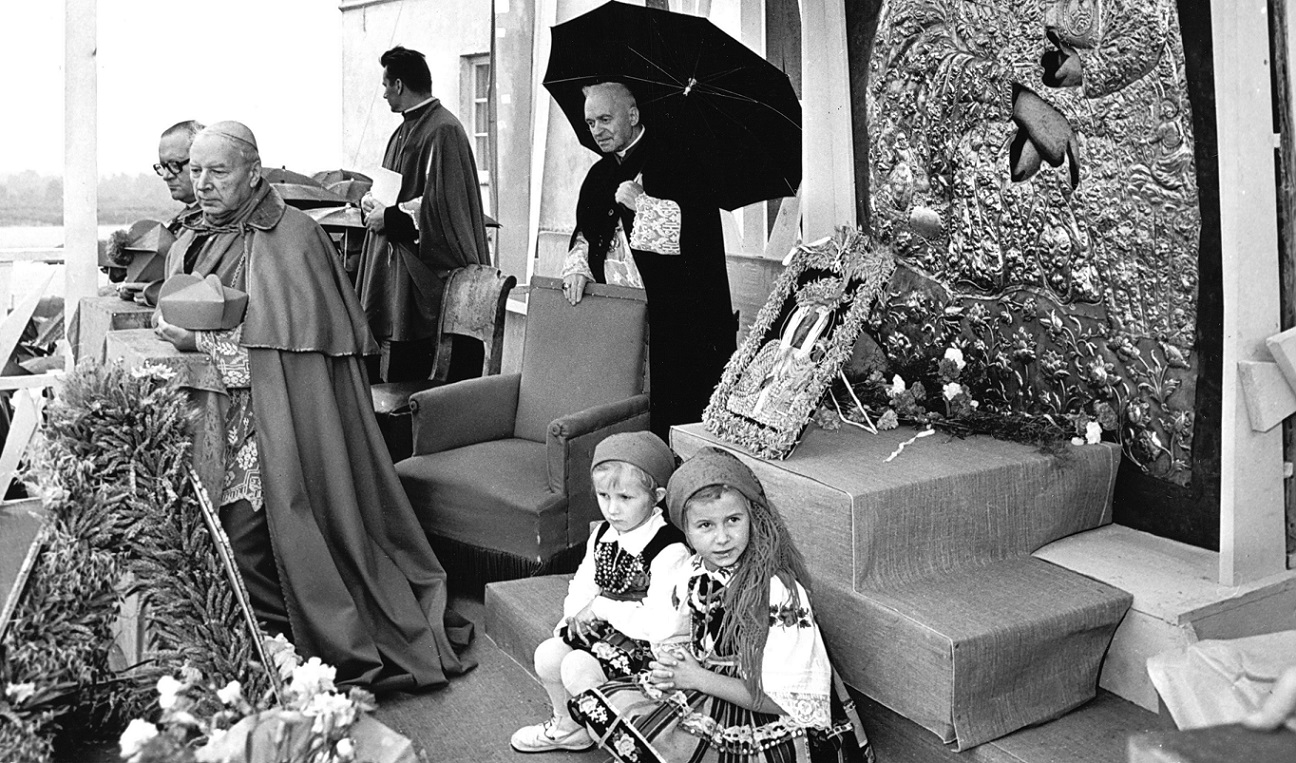Cardinal Wyszyński about DAILY RELIGIOUS PRACTICES


photo: Primate Cardinal Stefan Wyszynski Institute
Pearls and Aphorisms of Blessed Cardinal Stefan Wyszyński about DAILY RELIGIOUS PRACTICES.
Forgiveness and Reconciliation
- How wonderful it is to forget and to forgive! How internally liberating, making a person truly great, and at the same time close and brotherly. This is what love is; this is what true friendship is![i]
- The Christian style depends on a person’s understanding of different situations, trust in others, forgiving and forgetting easily.[ii]
- Forgiveness is the restoration of our freedom; it is the key in our hands to our own prison cell. And yet with this key, we can also open the fetters of our brother’s anger. Happiness depends to such a great extent on us! Most of the conflicts that plague people would probably end immediately, in the initial moment of dispute. Few would be forced to summon witnesses and resort to the help of the Church. So, it is an open road to social peace.[iii]
- A man forgives great vileness more easily than small things. We generously forgive great guilt. Perhaps they’ll write about us in the newspapers. Meanwhile, it most often concerns small things, the “mosquitoes” of everyday life, fleas jumping on the floor, a stinging gaze, the tip of the tongue, or an irritating decaying tooth.[iv]
Prayer
- W do not thank God enough! If we had the habit of giving thanks, our prayer would really be enormous! Not a prayer like when I kneel and decide not to leave until I feel “holes” in my knees, but a prayer in a crowded tram or bus, on the street, in some corridor, while standing in line, somewhere on the road … By giving thanks, even for small things, the topic of our prayer would be enriched. We would pray everywhere and always.[v]
- The sign of the Cross, beloved Children, will always remind us of all the truths of the faith if we make it attentively, truthfully, and clearly, and not only in an illegible, distorted way; when we say consciously and not just for the sake of habit: in the Name of the Father and of the Son and of the Holy Spirit.[vi]
- There is no need (…) to “torture” Christ by telling about ourselves. Rather, we need to say to Him: Speak, Lord; Your servant is listening. Let him speak. Christ is active when He is in us. It is He who works. He expresses his activity by the fact that we then hear many things from him.[vii]
Rosary
- Let us live with the Rosary so that we constantly pray it, that we come back to it easily, that we devote all our free time to it. What a good and faithful companion the Rosary can be in our daily activities! The hustle and bustle of many occupations, long journeys after work, into the field, to the factory, to school or the office, patiently following a plow or harrow, waiting in lines, at bus stops, in waiting rooms, long hours on a cart, in a car, in a railway car, sleepless nights watching over a sick child’s cradle, pleasant moments of rest, wandering in the woods or around the city – all this can be sanctified, enriched, and made pleasurable with the recitation of the Rosary.[viii]
- The Rosary is a psychological prayer because it addresses all our needs. And I will say more: it is the most common daily prayer. For, you have to be in church to listen to the Holy Mass and to hear sermons too, but you can pray the Rosary anywhere and at any time.[ix]
- The Rosary (…) is not the prayer of pietists, but the prayer of philosophers, sages, and thinkers. This is not bigotry! (…) The Rosary is a wonderful prayer, reminding everyone of the great dignity of a man, whose rights must not be violated and abused, with whom one cannot do what one pleases![x]
- Christian optimism is the greatest realism. There is torment and death, but also endless glory. It is not only Christ’s way but also our destiny and calling. We see them, when we recall in the glorious mysteries of the Rosary how Christ rises, goes to heaven, opens its gates, sends the Spirit of Love and, with gratefulness to the Lord’s Servant, takes her into heaven and makes her Queen. We too are called to resurrect, to be taken up into heaven, and crowned with glory.[xi]
- The Rosary is also a summary of the history of every Christian family. For, every family—like the life of Jesus and Mary—also has its own painful mystery. Christ experienced it, Mary experienced it, we also experience it. It is an inherent fate of every human life. Now, there are increasingly painful events today. They may disturb us at times, but when we contemplate the painful experiences of Jesus and Mary, we acquire special peace and learn how to live difficult moments with the serenity of the accomplished task.[xii]
Previous Pearls and Aphorisms:
SOCIAL THOUGHT of the Church >>>
PRAYERS AND PRISON MEDITATIONS >>>
[i] Miłość II, 20.
[ii] Ibid., 45.
[iii] Ibid., 181.
[iv] Ojcze, 117.
[v] Miłość II, 205-206.
[vi] Meditations Under the Cross. Warsaw, Cathedral Basilica of Saint John, 3 April 1966. KP 23, 161.
[vii] The Lord Is With You … Warszawa-Choszczówka, 9 April 1971. Ibid., 150.
[viii] Pastoral Letter On the Daily Recitation of the Holy Rosary. Lublin, 15 August 1947. DPZ 1955, No. 4, p. 213; Wszystko, 61-62.
[ix] Sermon on the Solemnity of the Assumption of the Blessed Virgin Mary. Warsaw, Church of the Immaculate Conception of the Blessed Virgin Mary in Bielany, 15 August 1951. WAW 1951.
[x] The Way of Joy, Sorrow, and Glory. Radom, 6 October 1968. KP 39, 27.
[xi] Ibid., 31-32.
[xii] Recite the Rosary! … Warsaw- Włochy, Saint Teresa’s parish, 1 October 1976. KP 55, 147.





Dodaj komentarz